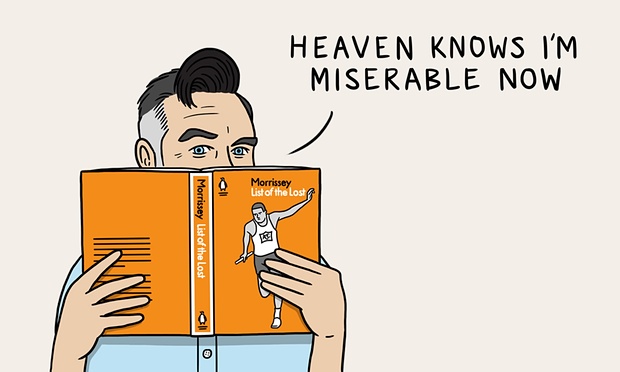An anonymous person writes:
"Some of the most heinously overblown prose printed by a major publishing house in living memory..."
Beyond The Bulbous Salutation: List Of The Lost Reviewed by Karl Smith - The Quietus
Morrissey's debut novel is 118 pages of prose in not-ungenerously-sized type-face – but, whatever else it is, is it any good?
An anonymous person posted the link (original post):
List of the Lost by Morrissey – digested read by John Crace - The Guardian
‘“You’ll never prove a thing that I did with my ding-a-ling,” shouts the Dean who is frightfully mean
Illustration: Matt Blease

"Some of the most heinously overblown prose printed by a major publishing house in living memory..."
Beyond The Bulbous Salutation: List Of The Lost Reviewed by Karl Smith - The Quietus
Morrissey's debut novel is 118 pages of prose in not-ungenerously-sized type-face – but, whatever else it is, is it any good?
An anonymous person posted the link (original post):
List of the Lost by Morrissey – digested read by John Crace - The Guardian
‘“You’ll never prove a thing that I did with my ding-a-ling,” shouts the Dean who is frightfully mean
Illustration: Matt Blease

Last edited by a moderator:

